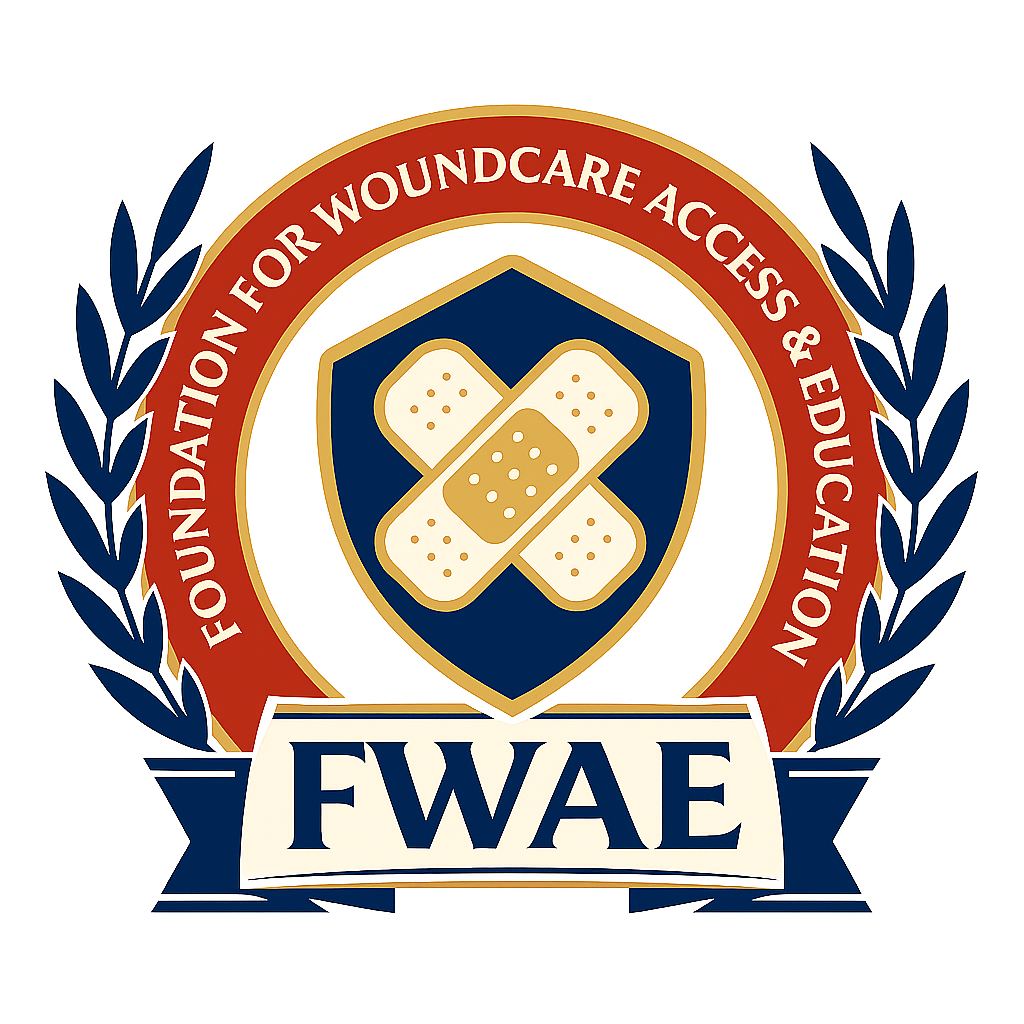Donate Wound Care Supplies
New Unopened Supplies
Every bandage, dressing, and roll of wrap can make a difference. We accept donations of new, unopened unexpired wound care supplies to support patients who may otherwise go without essential treatment materials.
Select Expired Supplies
We also welcome select expired supplies for use in education and clinical training. These materials help us teach hands-on wound care techniques to patients, caregivers, and clinicians.
Supporting Our Mission
Your contributions directly support our mission to expand access, improve healing outcomes, and empower communities through education. Learn how to donate or to coordinate a supply drive below.
Supply Donation Guidelines
Thank you for supporting the Foundation for Wound Care Access & Education (FWAE). Your donations help us provide critical wound care materials to patients in need and enhance our educational and training programs.
Please review the following guidelines before donating:
1. Acceptable Donations for Patient Use
We gratefully accept new, unopened, and unexpired wound care supplies, including:
-
Adhesive and non-adherent dressings, hydrocolloid, alginate, and foam dressings, silver and methylene blue dressings, contact layers
-
Gauze pads and rolls, elastic bandages (ACE wraps), cohesive bandages (Coban, self-adherent wraps)
-
Tape and securement products
-
Wound cleansers, saline, skin protectants and barrier creams (sealed containers)
-
Disposable gloves (nitrile preferred, all sizes)
- Disposable underpads (sealed packaging only)
-
Cotton tipped applicators (sealed packaging only)
- Offloading pads or foam protectors (new/unused only)
- Compression stockings (new/unworn only)
-
Negative pressure wound therapy (NPWT) devices, foam and canisters (unopened)
All items must be in their original, sealed packaging and clearly labeled by the manufacturer. Items containing patient names are not accepted.
2. Acceptable Donations for Education & Training
FWAE also accepts select expired or near-expired supplies for use in educational demonstrations and skills training, such as:
-
ABD pads, kling or rolled gauze
-
Bordered dressings, non-medicated foam or hydrocolloid dressings
-
Demo wound models (foam or silicone-based)
-
Disposable underpads (chux)
Expired items are never used for direct patient care — they support hands-on education for clinicians, patients, and caregivers.
3. Items We Cannot Accept
To ensure safety and compliance, we cannot accept:
- Opened or partially used supplies (even supplies for education & training)
-
Medications, topical ointments, or prescription products
-
Liquids or solutions that are leaking, unsealed, or unlabeled
-
Sharps, needles, or lancets
-
Used or soiled materials
- Items containing patient names and/or information
4. Packaging & Drop-Off
-
Please place items in a clean, sturdy box or bag.
-
Fill out our Supply Form or include a brief note with your name, organization (if applicable), and contact email.
-
Donations can be shipped or dropped off by at our main FWAE office.
- We may be able to pick up your donation: contact us for more information.
5. Acknowledgment
If you’d like a donation acknowledgment letter for your records, please include your mailing or email address with your package.
FWAE supply acceptance policy. FWAE accepts new, unopened, unexpired wound care supplies for patients in need. All donations will be inspected on arrival. Items that are opened, used, or are patient-labeled will not be accepted for patient use. Select expired or near-expired supplies may be accepted for education and training only and will be permanently labeled and segregated from clinical inventory. Supplies that were billed to Medicare or other payers will only be accepted after coordination with the original supplier and confirmation that no Medicare billing/overpayment issue exists.
Join us in reaching our goal!
You can make a direct impact on the future of wound care. Your support helps expand access to treatment, deliver education and support to patients and caregivers, and equip healthcare professionals with the tools they need to provide quality, compassionate care.
